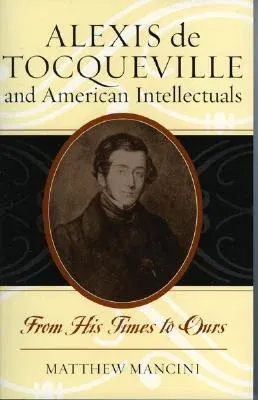Matthew Mancini
(Author)Alexis de Tocqueville and American Intellectuals: From His Times to OursPaperback, 8 December 2005

Qty
1
Turbo
Ships in 2 - 3 days
In Stock
Free Delivery
Cash on Delivery
15 Days
Free Returns
Secure Checkout

Part of Series
American Intellectual Culture
Part of Series
American Intellectual Culture (Paperback)
Print Length
280 pages
Language
English
Publisher
Rowman & Littlefield Publishers
Date Published
8 Dec 2005
ISBN-10
0742523446
ISBN-13
9780742523449
Description
Product Details
Author:
Book Format:
Paperback
Country of Origin:
US
Date Published:
8 December 2005
Dimensions:
22.66 x
17.07 x
1.52 cm
ISBN-10:
0742523446
ISBN-13:
9780742523449
Language:
English
Location:
Lanham, MD
Pages:
280
Publisher:
Weight:
362.87 gm